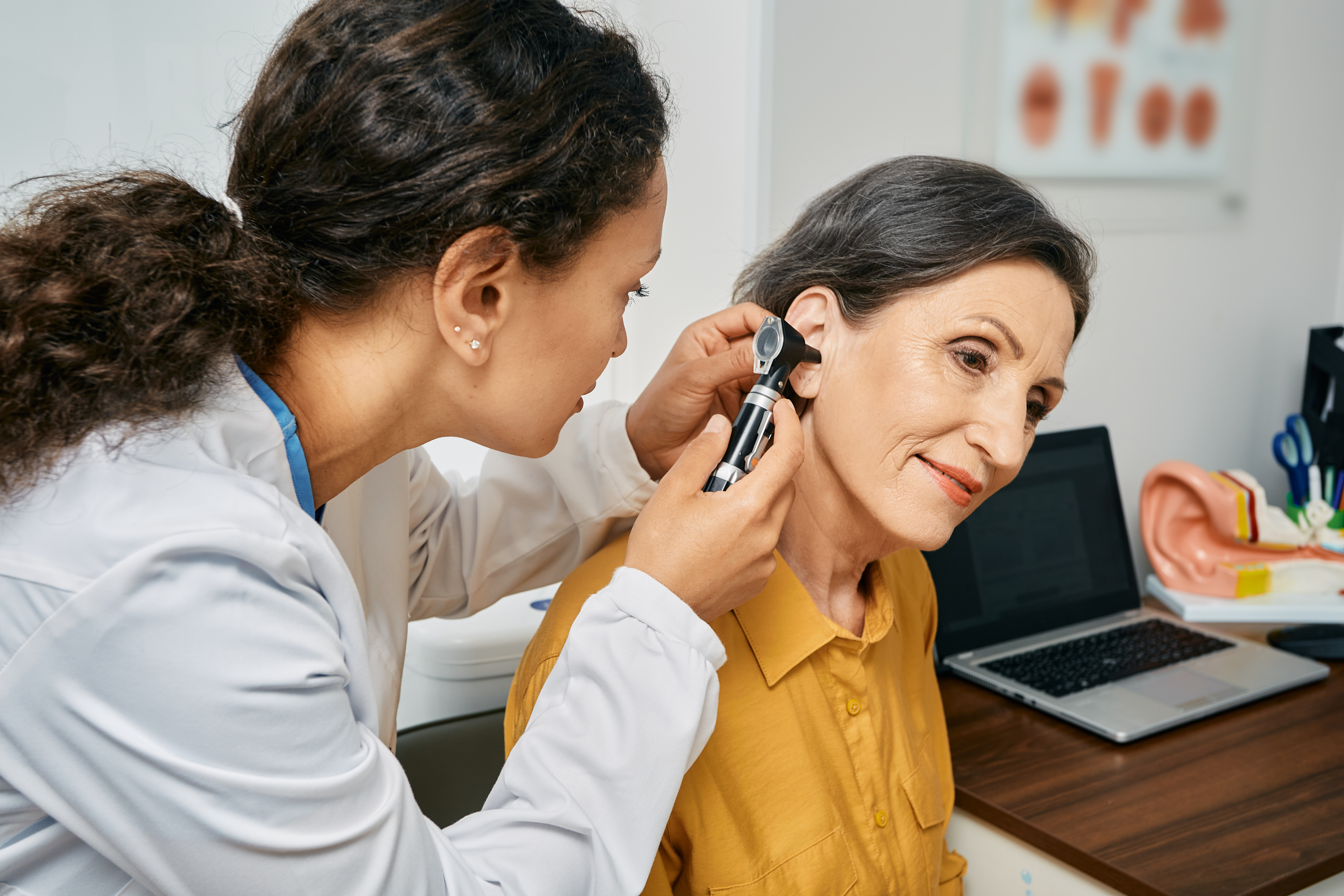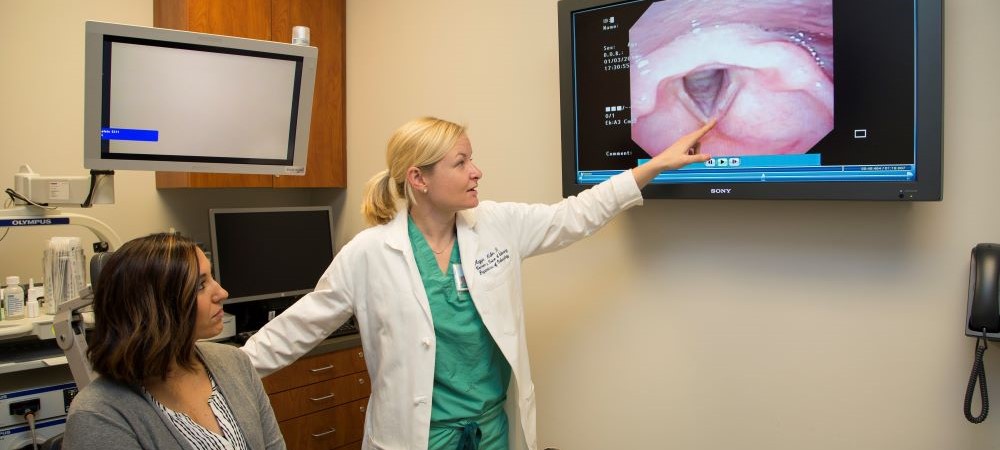Issues with Hearing? Here's When to Seek Help from a Hearing ENT
Issues with Hearing? Here's When to Seek Help from a Hearing ENT
Blog Article
Checking out the Field of Otolaryngology: What to Expect When You Get In Touch With an ENT
Otolaryngology, typically described as ENT, encompasses the diagnosis and treatment of nose, throat, and ear disorders. For those experiencing related issues, seeking advice from an ENT expert can supply clarity and relief. Comprehending what to expect during such appointments is necessary for reliable communication and care. This introduction will certainly outline vital aspects of the ENT experience, consisting of common factors for check outs and the processes associated with medical diagnosis and therapy.

Comprehending Otolaryngology: An Overview
Otolaryngology, typically described as ENT (Throat, nose, and ear) medication, is a specialized branch of medication that concentrates on the diagnosis and therapy of problems affecting these vital locations of the body. This field incorporates a wide variety of conditions, including those associated to hearing, equilibrium, breathing function, and speech. Otolaryngologists are trained to handle both medical and surgical therapies, using innovative techniques and technologies. Their proficiency expands past traditional ailments, dealing with issues such as allergic reactions, sinus infections, and hearing loss. Furthermore, they play an important function in the management of head and neck cancers, giving thorough treatment tailored to specific person needs. In general, otolaryngology remains important for keeping health and high quality of life in afflicted people.
Common Reasons to See an ENT Professional
Lots of people look for the know-how of an ENT professional for a selection of factors, reflecting the diverse nature of conditions that impact the nose, throat, and ear. Common issues include chronic sinus problems, which often leads to persistent nasal blockage and face discomfort. Allergic reactions and their linked symptoms, such as sneezing and itching, also prompt brows through to these professionals (ENT Doctor). Hearing loss, whether progressive or unexpected, is one more considerable reason for appointment. On top of that, people might seek analysis for throat disorders, consisting of persistent hoarseness or ingesting difficulties. Rest apnea, defined by interrupted breathing during rest, is regularly dealt with by ENT specialists as well. Each of these conditions highlights the significance of specialized treatment in handling complex ENT-related health concerns
Planning for Your ENT Consultation
When preparing for an ENT consultation, it is vital to collect relevant details and consider any kind of certain concerns. People should compile an in-depth case history, including previous ear, nose, or throat concerns, surgical treatments, and current drugs. Documenting signs and symptoms-- such as seriousness, frequency, and period-- can supply valuable understandings for the ENT specialist. Furthermore, individuals should prepare a listing of inquiries they desire to ask, making sure that all problems are dealt with throughout the see. Bringing along any type of pertinent clinical records or examination outcomes can further aid the ENT in understanding the client's condition. Clients must validate their appointment information, consisting of day, area, and time, to decrease any last-minute confusion. Proper preparation can enhance the efficiency of the consultation and lead to better end results.
What to Anticipate Throughout the Examination
As the assessment begins, the client can expect to take part in a detailed discussion with the ENT professional concerning their signs and symptoms and medical background. The specialist will certainly ask about the duration, frequency, and intensity of signs such as hearing loss, nasal congestion, or aching throat. In addition, the person's previous clinical conditions, medications, and any kind of pertinent household background will certainly be examined, aiding the specialist in developing a complete understanding of the patient's wellness. The ENT might likewise ask about lifestyle variables, such as exposure to allergens or toxic irritants. This open dialogue develops a structure for the appointment, ensuring that the person's issues are dealt with and establishing the stage for any kind of needed evaluations or referrals for treatment.
Diagnostic Tests and Procedures in Otolaryngology
A series of diagnostic examinations and procedures are crucial in otolaryngology to accurately evaluate and identify problems affecting the ear, throat, and nose. Usual tests consist of audiometry, which measures hearing feature, and tympanometry, evaluating center ear stress. Nasal endoscopy enables visualization of the nasal flows and sinuses, while laryngoscopy analyzes the throat and singing cords. Imaging methods, such as CT scans and MRIs, provide in-depth sights of head and neck structures. Allergic reaction testing may additionally be performed to determine triggers for sinus or respiratory system issues. These diagnostic devices enable ENT experts to establish an extensive understanding of individuals' conditions, making sure customized and effective management strategies. Appropriate medical diagnosis is important for effective go now treatment results in otolaryngology.
Therapy Alternatives Provided by ENT Specialists
ENT experts supply a selection of therapy options tailored to attend to details problems affecting the throat, nose, and ear. These treatments range from conservative methods, such as medicine and way of life adjustments, to more invasive procedures. For example, allergies might be taken care of with antihistamines or immunotherapy, while chronic sinus problems may need nasal corticosteroids or sinus surgery. For hearing loss, ENT experts commonly suggest hearing aids or medical treatments like cochlear implants. In cases of throat disorders, alternatives can consist of speech treatment or surgeries to remove obstructions. In addition, they might supply support for taking care of sleep apnea, consisting of the usage of CPAP devices or surgical interventions. In general, the goal is to boost people' top quality of life with customized treatment and effective treatment techniques.
When to Seek Follow-Up Care With an ENT
Identifying when to look for follow-up care with an ENT professional is essential for handling recurring signs or issues associated to throat, ear, and nose problems. Individuals ought to consider setting up a follow-up appointment if symptoms continue regardless of preliminary therapy, such as chronic ear discomfort, nasal congestion, or throat pain. Adjustments in hearing, balance problems, or uncommon nasal discharge may likewise necessitate further examination. In addition, if a person experiences adverse effects from suggested medicines or has actually undergone an operation, follow-up care is vital to monitor recuperation and deal with any type of problems. Timely assessments can guarantee reliable administration of conditions, avoid potential problems, and offer assurance regarding one's health and wellness. Seeking follow-up care promotes aggressive wellness administration in otolaryngology.
Often Asked Concerns

What Credentials Should I Look for in an ENT Expert?
When looking for an ENT professional, one ought to look for board qualification, appropriate experience, and solid individual evaluations. In addition, effective interaction abilities and a caring technique can significantly improve the total treatment experience.
Just how Do I Pick the Right ENT for My Requirements?
Choosing the right ENT professional involves evaluating their certifications, experience, and person reviews (ENT). It is important to contemplate their communication style and strategy to therapy, ensuring they align with the person's particular wellness demands and preferences
Exist Any Threats Related To ENT Procedures?
The threats related to ENT treatments may consist of infection, blood loss, anesthetic complications, and potential damage to surrounding structures. People ought to discuss these threats with their physician to recognize specific concerns and guarantee notified decisions.
Exactly How Can I Handle Anxiousness Prior To My ENT Consultation?
To handle anxiety prior to a visit, individuals can practice deep breathing exercises, imagine favorable end results, prepare inquiries in advancement, and look for support from friends or family, fostering a feeling of confidence and calmness.
What Should I Do if I Experience Side Impacts From Therapy?
If side effects from therapy take place, the individual must without delay additional hints report them to their healthcare copyright. Modifications to treatment or extra interventions may be essential to assure safety and security and performance in handling their condition site link - Hearing. As the appointment begins, the individual can expect to involve in a detailed conversation with the ENT specialist concerning their signs and medical background. These analysis devices make it possible for ENT professionals to develop a complete understanding of patients' problems, making certain tailored and reliable monitoring plans. ENT professionals use a variety of therapy choices tailored to attend to certain conditions influencing the nose, throat, and ear. When seeking an ENT professional, one must look for board qualification, appropriate experience, and solid client testimonials. Picking the ideal ENT specialist includes reviewing their credentials, experience, and person evaluations
Report this page